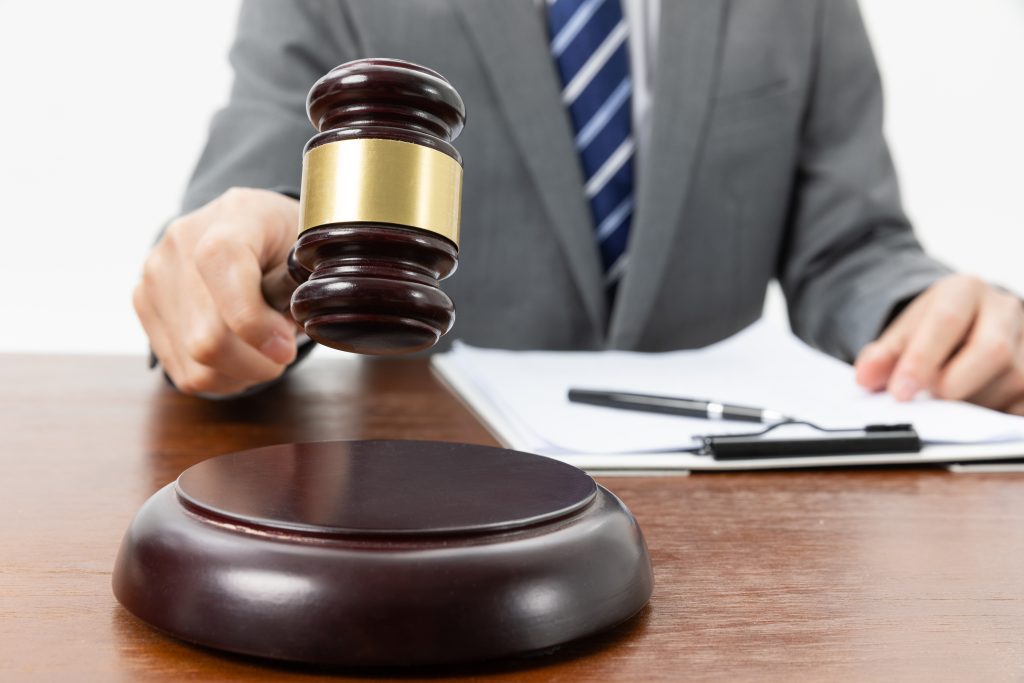When an accused person confesses that their offence was an involuntary occurrence, they raise the defence of automatism. The criminal law covers the defence of automatism, which implies that the Court cannot find an accused individual guilty if the act occurs independently of their will. Automatism, however, depends on the nature of the crime. If the crime does not require the accused to act voluntarily, then automatism will not apply.
Automatism is not a medical condition. Instead, it is a legal term that describes a situation where the behaviour occurs without the accused’s will. The determining factor is the lack of exercise of the accused’s will rather than a lack of knowledge or consciousness. The accused is aware of the situation and their actions but cannot control their actions. It implies that they are typically disassociated from the act and may act involuntarily. Automatism is not dependent on the accused’s awareness of the event. Rather, it relies on their behaviour’s deliberation – or lack thereof.
What is the defence of automatism?
Automatism is a legal term that describes an activity occurring without an accused’s will. The critical factor is the absence of the accused’s will rather than their knowledge or consciousness. The criminal law recognises two kinds of automatism –
- Insane Automatism – A mental illness or ‘disease of the mind’ is responsible for the action. Examples include schizophrenia, brain injury, and tumour.
- Sane Automatism – Something other than a ‘disease of the mind’ is responsible for the action. Examples include concussion or hypoglycaemia.
In some circumstances, both categories may also be applicable. However, it is crucial to understand the differences between the two types of automatism. While insane automatism is an involuntary reaction due to an existing medical condition, sane automatism is a significant reaction to extraordinary stimuli. In both cases, the burden of proof can rely on either party depending on the nature of the case and type of automatism.
Insane Automatism
Insane automatism results from a mental illness or a ‘disease of the mind.’ It is the reaction of an unsound mind that can also cause delusions. The physical deterioration of the brain cells or a significant alteration to the brain’s structure isn’t essential to classify it as a ‘disease of the mind’. To meet the criteria, the accused must be a victim of mental disease, disorder, or disturbance. Insane automatism does not justify a lack of self-control, passion, or impulsivity. However, it is crucial to differentiate between healthy minds and minds suffering from an underlying pathological infirmity. The ‘disease of the mind’ can be temporary or permanent, curable or incurable.
Situations involving the use of alcohol or drugs will rely on the intoxicating effects of these substances. For example, if the accused is a victim of epilepsy triggered by alcohol or drugs, the resulting state of automatism will be ‘insane.’ However, they must prove that self-induced intoxication is ruled out. Intoxication can further create complexities in the case due to the other associated factors.
In cases involving insane automatism, the onus of proving the defence lies with the party responsible for raising the issue. After which, the Court will establish insane automatism on the balance of probabilities. If successful, the mental impairment will be reason enough for the Court to find the accused not guilty.
Which Court will hear the matter for Insane Automatism?
All courts are eligible to hear the defence of insane automatism – depending on the type of legal charges. If the matter reaches the County or Supreme Courts, a Judge can make a supervisory order. The Court will incarcerate the accused at a psychiatric hospital or keep them under strict supervision in the community.
If the matter remains in the Magistrates’ Court, the Magistrate can either discharge the accused or find them guilty of the charges. The Magistrate cannot make any supervisory orders. Hence, an accused’s perspective can be crucial at the hearing of these matters in Magistrates’ Court. Moreover, police prosecutors don’t prefer to run these matters in the Magistrates’ Court. Hence, you must ensure that your lawyer is ready to argue jurisdiction in such cases.
It is crucial to hire an experienced lawyer who understands the limitations of evidence with automatism and the complexities involved in the case. When representing a client and raising the issue of automatism – sane or insane – it is crucial to understand the associated factors and complexities.
Sane Automatism
Sane automatism results from external stimuli – not a ‘disease of the mind.’ However, external stimuli can also trigger an underlying condition and categorise the condition as a ‘disease of the mind.’ This will result in the defence of insane automatism. For example, if the accused is diabetic, the type of automatism will depend on the type of stimuli – internal or external. Excessive insulin intake can cause hypoglycaemia (low blood sugar) and result in sane automatism. The external stimuli – the medication – triggered the underlying condition. However, excessive sugar levels in the blood can cause hyperglycaemia (high blood sugar) and result in insane automatism. The body’s internal processes or underlying infirmity caused the reaction. Sane automatism involves a healthy mind where external stimuli can cause a deterioration in mental health.
Evidence
Sane automatism requires the defence to bring the evidence and allows the prosecution to disprove the existence of sane automatism beyond a reasonable limit. The prosecution can challenge the findings in the report if necessary.
Hence, the onus of proof lies with the prosecution to disprove the existence of sane automatism with evidence of voluntary actions.
The Sound/Unsound Mind Test
A sound/unsound mind test marks the distinction between insane and sane automatism. However, there can be serious implications. If the accused successfully meets the criteria of sane automatism, the Court will wholly acquit them. However, if they meet the criteria for insane automatism, the Court will imply the defence of mental impairment. The Court will find the accused not guilty and could subject them to supervision or place a supervision order (if the matter reaches Supreme Court).
According to the sound/unsound mind test standards, a ‘disease of the mind’ must be a result of an unhealthy mind. It cannot be a reaction to extraordinary external stimuli from an otherwise healthy mind. The reason is that the external stimuli are not reliable in determining the state of an individual’s mind. Anxiety can trigger a post-traumatic response and classify it as a ‘disease of the mind’ or insane automatism. However, night terrors or other significant shocks causing an event can classify as sane automatism.
It doesn’t seem fair nor useful to punish individuals for unintended actions or unforeseen circumstances unless there was an inexcusable risk. Hence, the criminal law clearly differentiated between unintentional and intentional conduct. Criminal acts involve an intention, recklessness, consciousness, or negligence driving the physical action. However, automatism can be difficult to prove due to the inconsistency of how courts in different jurisdictions deal with similar cases. Hence, you need a skilled and experienced lawyer to succeed with such a defence.
Burden of Proof
The burden of proof can shift to either party depending on the nature of defence – sane automatism or insane automatism. When the defence brings sane automatism, the onus of proof is on the prosecution. They must disprove the claim beyond a reasonable doubt and prove that the action was voluntary. If they fail to do so, the Court will acquit the accused.
Insane automatism relies on the balance of probabilities and the existence of mental impairment. If the defence can prove this, the Court will find the accused not guilty due to mental impairment. Some cases may involve both sane and insane automatism, bringing complexities to the verdict.
In some circumstances, high consumption of alcohol or drugs can also cause involuntary actions, leading to automatism. However, intoxication can raise other issues and circumstances that the Court might consider separately – from automatism.
Talk to a United Legal lawyer today
Automatism can be a highly complex legal defence in Court, considering the various inconsistencies and variables. Hence, you require professional consideration from the best lawyers in Canberra. If you are under investigation for a criminal offence and believe the circumstances fall under automatism, please don’t hesitate to contact our team at United Legal.

Automatism isn’t an easy defence to prove in Court. Lawyers with limited experience can often wrap themselves in other uncertainties as well that further complicate the case. Moreover, the limitations of proof with sane automatism can create another hurdle when representing a client in Court.
Our team of expert and experienced lawyers aim to achieve the best possible legal outcome. Our criminal law specialists have extensive legal expertise and experience that allows them to access the relevance of automatism or any other defence to the case. We create a calculated legal strategy to represent our clients in Court and fight for their legal rights.
UNITED LEGAL
Canberra’s Best Lawyers
For our legal support services Contact us at (02) 6295 2283
Visit us at






